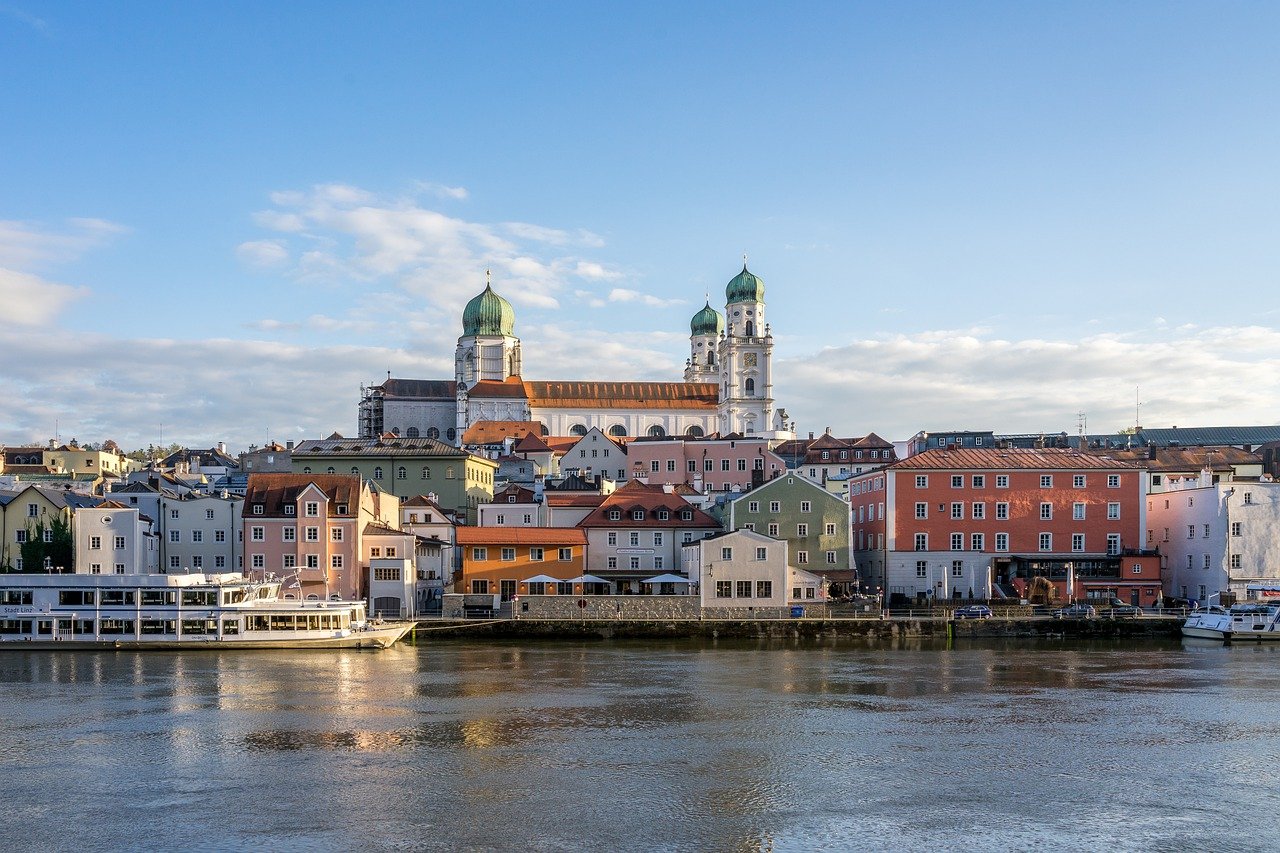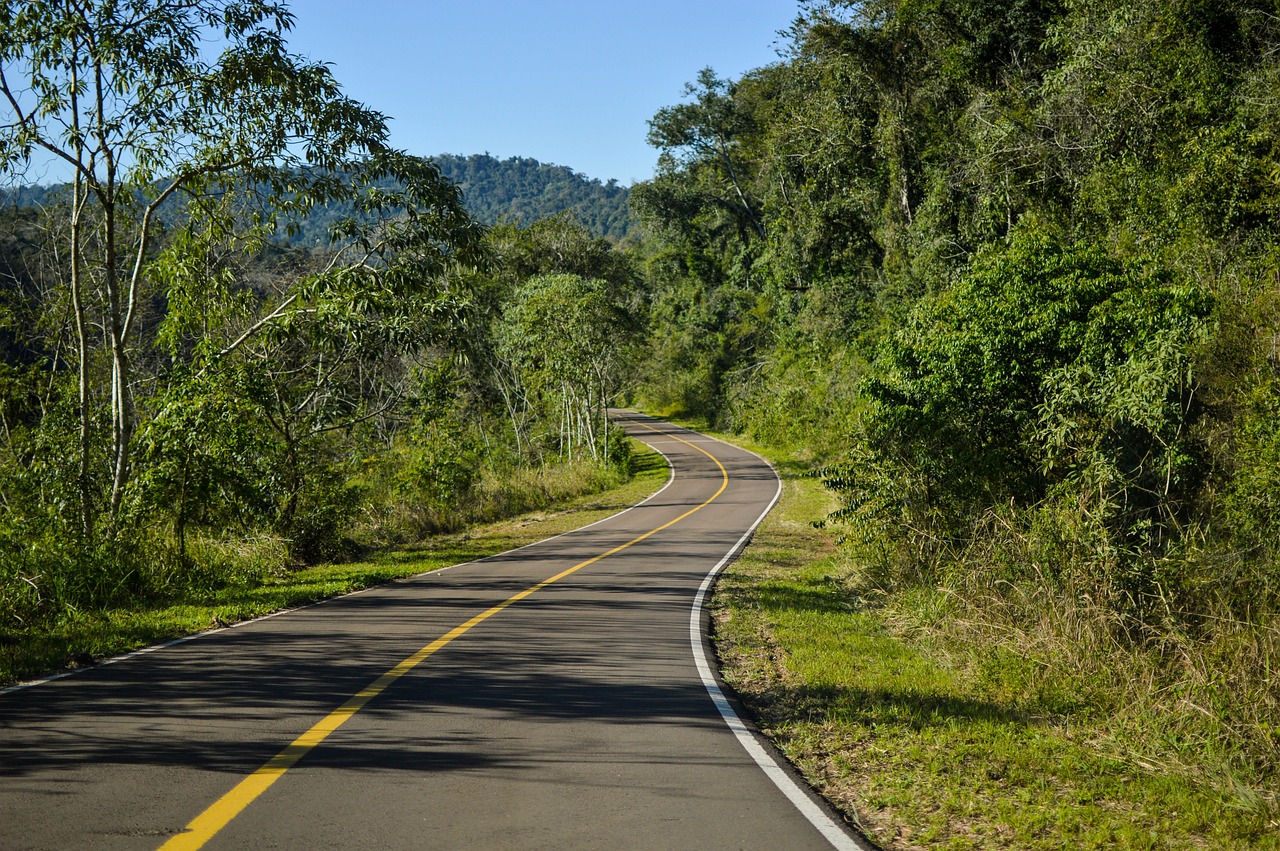How to Plan a Responsible and Eco-Friendly Travel Itinerary
Planning a responsible and eco-friendly travel itinerary is not just about exploring new destinations; it's about making a positive impact on the environment and local communities you visit. By incorporating sustainable practices into your travel plans, you can minimize your carbon footprint and contribute to the preservation of our planet's natural beauty.
When embarking on your next adventure, consider choosing sustainable accommodation options that prioritize eco-friendly practices and support conservation efforts. Opt for hotels, lodges, or homestays that are committed to reducing their environmental impact and promoting responsible tourism.
Packing light and smart is another essential aspect of eco-friendly travel. Bring reusable items such as water bottles, utensils, and shopping bags to minimize single-use plastic waste. Choose eco-friendly toiletries and clothing made from sustainable materials to reduce your environmental footprint while on the road.
Supporting local communities is a meaningful way to engage with the places you visit. Seek out local businesses, artisans, and tour guides to contribute to the community's economy and cultural preservation. By purchasing locally made souvenirs and dining at family-owned restaurants, you can make a positive difference in the lives of the residents.
Utilizing public transportation is a great way to explore destinations while reducing your carbon emissions. Opt for buses, trains, or bicycles instead of renting a car to promote sustainable travel practices. Not only does public transportation help minimize your environmental impact, but it also allows you to immerse yourself in the local culture and way of life.
Respecting wildlife and nature is crucial when traveling responsibly. Observe animals from a safe distance, avoid feeding them, and stay on designated trails to protect their natural habitats. By being mindful of your surroundings and following conservation guidelines, you can help preserve the biodiversity of the places you visit.
To minimize plastic usage during your travels, carry a reusable water bottle, utensils, and bags with you. Refrain from purchasing single-use plastic items and opt for sustainable alternatives wherever possible. By reducing your plastic consumption, you can help combat plastic pollution and protect marine ecosystems.
Offsetting your carbon footprint is a proactive way to neutralize the environmental impact of your travels. Calculate your trip's carbon emissions and consider investing in carbon offset programs or tree-planting initiatives to support renewable energy projects and reforestation efforts. By taking responsibility for your carbon footprint, you can contribute to a more sustainable future for our planet.
Participating in conservation activities while traveling allows you to actively contribute to environmental preservation efforts. Join beach cleanups, wildlife monitoring programs, or tree planting initiatives to make a tangible impact on the places you visit. By getting involved in conservation projects, you can help protect fragile ecosystems and support biodiversity conservation.
Educating yourself and others about sustainable travel practices is key to promoting responsible tourism worldwide. Learn about eco-friendly initiatives, ethical wildlife tourism guidelines, and conservation efforts in the destinations you visit. Share your knowledge with fellow travelers and encourage them to adopt sustainable habits to create a positive ripple effect in the travel community.

Choose Sustainable Accommodation
When planning a responsible and eco-friendly travel itinerary, one of the key considerations is choosing sustainable accommodation. Opting for eco-friendly hotels, lodges, or homestays can significantly reduce your environmental impact while supporting businesses that prioritize sustainability and conservation efforts. These accommodations often implement practices such as energy efficiency, waste reduction, and water conservation to minimize their carbon footprint.
By staying at sustainable accommodation, you can actively contribute to the preservation of natural resources and ecosystems. These establishments may use renewable energy sources, promote local biodiversity, and engage in community initiatives that benefit both the environment and local residents. Additionally, many eco-friendly accommodations offer unique experiences that allow travelers to immerse themselves in the surrounding nature and culture.
When researching accommodation options for your trip, look for certifications or eco-labels that indicate a commitment to sustainability. These certifications, such as LEED or Green Key, demonstrate that the property meets specific environmental standards and practices. Choosing sustainable accommodation not only benefits the environment but also provides a more authentic and enriching travel experience.

Pack Light and Smart
When it comes to traveling responsibly and eco-friendly, one crucial aspect to consider is how you pack for your trip. Packing light and smart not only benefits the environment by reducing waste but also makes your journey more convenient and enjoyable. By selecting the right items and making conscious choices, you can minimize your ecological footprint while maximizing your travel experience.
One key strategy is to pack reusable items that can help you avoid single-use plastics during your trip. Bringing a reusable water bottle, utensils, and shopping bags can significantly reduce the amount of plastic waste generated during your travels. Additionally, opting for eco-friendly toiletries packaged in sustainable materials can further contribute to minimizing plastic usage.
Choosing clothing made from sustainable materials such as organic cotton, bamboo, or recycled fabrics is another smart way to pack light and eco-consciously. These materials are not only environmentally friendly but also lightweight and versatile, making them ideal for travel. Packing multi-functional clothing items that can be mixed and matched reduces the need for excess baggage, allowing you to travel with ease.
When preparing your luggage, consider the environmental impact of each item you pack. Prioritize essentials and versatile pieces that can serve multiple purposes throughout your trip. By packing strategically, you can reduce the weight of your luggage, save space, and minimize the resources needed for transportation.
Furthermore, packing light and smart also involves being mindful of the waste you generate while traveling. Avoid single-use items such as disposable toiletries, plastic packaging, and excess souvenirs that may end up in landfills. Instead, opt for products with minimal packaging or choose refillable options to reduce waste production during your journey.
Incorporating sustainability into your packing routine not only benefits the environment but also enhances your overall travel experience. By packing light and smart, you can navigate your adventures with ease, minimize your ecological impact, and set an example for responsible travel practices.

Support Local Communities
When traveling, one of the most impactful ways to promote responsible tourism is by supporting local communities. By engaging with local businesses, artisans, and tour guides, travelers can contribute to the economy and cultural preservation of the destinations they visit. Instead of opting for international chains, choosing locally-owned accommodations and services allows travelers to directly support the community they are exploring.
Interacting with local artisans not only provides travelers with unique souvenirs but also helps sustain traditional crafts and skills. By purchasing handmade products or participating in workshops, travelers can actively contribute to the preservation of cultural heritage while creating meaningful connections with the local community.
Furthermore, hiring local guides for tours not only offers a more authentic and insightful experience but also generates income for individuals who are deeply knowledgeable about the area's history, culture, and environment. These guides often provide valuable insights and stories that enhance the travel experience, fostering a deeper appreciation for the destination.
Supporting local communities goes beyond financial contributions; it involves respecting local customs and traditions, showing appreciation for the community's way of life, and actively engaging with the local population. By immersing oneself in the local culture, travelers can gain a deeper understanding of the destination and forge connections that transcend geographical boundaries.

Use Public Transportation
When it comes to reducing your carbon footprint while traveling, opting for public transportation can be a game-changer. Not only does using buses, trains, or bicycles help minimize your impact on the environment, but it also allows you to immerse yourself in the local culture and experience destinations from a unique perspective.
Imagine gliding through bustling streets on a tram, taking in the sights and sounds of a vibrant city without worrying about navigating traffic or finding parking. Public transportation not only offers convenience but also promotes sustainable travel by significantly lowering carbon emissions compared to individual car rides.
Picture yourself cycling along picturesque coastal roads, feeling the breeze on your face and stopping at charming cafes along the way. By choosing bicycles or electric scooters to explore your destination, you not only reduce air pollution but also engage in a healthy and eco-friendly mode of transportation.
Embarking on a train journey through scenic landscapes can be a memorable adventure, allowing you to relax and enjoy the beauty of nature while minimizing your environmental impact. Trains are known for their energy efficiency and lower greenhouse gas emissions per passenger mile, making them a sustainable choice for eco-conscious travelers.
Public transportation not only benefits the environment but also connects you with local communities and their way of life. By interacting with fellow passengers and observing daily routines during your commute, you gain a deeper understanding of the destination and support the local economy.
So, the next time you plan your travel itinerary, consider incorporating public transportation as a responsible and eco-friendly way to explore the world while reducing your carbon footprint. Embrace the journey, savor the moments, and contribute to sustainable tourism by choosing buses, trains, or bicycles as your preferred mode of transportation.

Respect Wildlife and Nature
When traveling to natural habitats or encountering wildlife, it is crucial to respect the delicate balance of ecosystems and the animals that call these places home. Imagine stepping into a forest, each leaf a piece of a grand puzzle, and each animal a character in a complex story. Your presence should be like a whisper in this intricate tale, leaving no trace but admiration behind.
Observing wildlife from a safe distance is not only for your safety but also for the well-being of the animals. Just like a dance, each species has its own rhythm and space. By keeping a respectful distance, you allow them to continue their natural behaviors without disturbance.
It's tempting to reach out with a snack or a touch, but remember, wild animals have their own diets and social structures. Feeding them human food can disrupt their health and habits, like throwing a stone into a still pond, creating ripples that alter the entire surface.
When exploring nature trails or parks, stay on designated paths to avoid trampling on fragile habitats. These paths are like threads woven carefully through a tapestry, guiding you without unraveling the intricate beauty that surrounds you.
Just as a painter respects the canvas, and a musician the instrument, respecting wildlife and nature is essential for preserving the wonders of our planet. Let your presence be a gentle breeze, leaving nothing but appreciation in its wake.
Frequently Asked Questions Section:Q: How can I contribute to wildlife conservation during my travels?
A: You can support wildlife conservation by participating in eco-friendly tours, avoiding products made from endangered species, and donating to reputable conservation organizations.
Q: Is it safe to observe wildlife in their natural habitats?
A: Yes, it is safe as long as you maintain a safe distance and follow guidelines provided by park authorities or tour guides.
Q: What should I do if I encounter injured wildlife during my travels?
A: Contact local wildlife authorities or rescue centers for assistance. Do not attempt to handle or rescue the animal yourself.

Minimize Plastic Usage
When it comes to minimizing plastic usage during your travels, small changes can make a big difference in reducing environmental impact. One effective way to achieve this is by carrying a reusable water bottle, which not only helps in cutting down single-use plastic waste but also ensures you stay hydrated throughout your journey. Additionally, opting for a refillable water bottle can save you money in the long run, as you won't need to purchase bottled water frequently.
Another essential item to pack is reusable utensils such as a fork, spoon, and straw. By bringing your own utensils, you can avoid using disposable plastic cutlery provided at restaurants or food stalls, thereby reducing plastic waste. These lightweight and compact utensils can easily fit into your bag or backpack, making them convenient to carry around during your travels.
Carrying reusable bags is also crucial in minimizing plastic usage while shopping or carrying items during your trip. Whether you're buying groceries, souvenirs, or simply need a bag for your belongings, opting for a reusable tote or cloth bag can significantly reduce the need for plastic bags. These eco-friendly alternatives are durable, washable, and can be used multiple times, making them a sustainable choice for environmentally conscious travelers.
When purchasing toiletries for your journey, choose products that come in biodegradable or compostable packaging to minimize plastic waste. Look for eco-friendly brands that offer shampoo, soap, and other personal care items in recyclable containers or solid forms, such as shampoo bars. Making conscious choices in selecting toiletries can help in reducing the amount of plastic packaging that ends up in landfills or oceans.
Lastly, be mindful of your consumption habits and try to avoid unnecessary plastic items during your travels. Say no to plastic straws, stirrers, and single-use plastic cups whenever possible. By being proactive in refusing plastic products and opting for reusable alternatives, you can play a part in protecting the environment and promoting sustainable travel practices.

Offset Your Carbon Footprint
Offsetting your carbon footprint is a crucial step in responsible travel. By calculating the emissions produced during your trip, you can take action to neutralize the environmental impact. One effective way to offset carbon emissions is by investing in carbon offset programs or supporting tree-planting initiatives. These initiatives help absorb the carbon dioxide released into the atmosphere, thereby balancing out the environmental harm caused by your travels.
Carbon offset programs work by funding projects that reduce greenhouse gas emissions, such as renewable energy projects or reforestation efforts. By contributing to these programs, you are actively supporting sustainability initiatives that benefit the environment and communities worldwide. It's a tangible way to take responsibility for your carbon footprint and contribute to a greener future.
When choosing a carbon offset program, ensure it is certified by reputable organizations like the Gold Standard or Verified Carbon Standard. These certifications guarantee that your investment is making a real and measurable impact on reducing carbon emissions. Additionally, some airlines offer carbon offset options when booking flights, making it convenient for travelers to offset their air travel emissions.

Participate in Conservation Activities
Participating in conservation activities during your travels can have a significant positive impact on the environment and local communities. By actively engaging in initiatives that aim to protect wildlife, preserve natural habitats, and promote sustainability, you become a proactive contributor to responsible tourism.
One way to get involved is by joining beach cleanups organized by local conservation groups or eco-friendly resorts. These activities not only help keep the beaches clean but also raise awareness about the importance of reducing plastic pollution in our oceans.
Another meaningful way to participate is by volunteering for wildlife monitoring programs. By assisting researchers in tracking and studying animal populations, you contribute valuable data that can inform conservation efforts and help protect endangered species.
Tree planting activities are also a great way to give back to the environment. Whether it's joining a reforestation project or participating in community tree planting events, planting trees helps restore ecosystems, combat climate change, and create sustainable habitats for wildlife.
Engaging in conservation activities not only allows you to make a positive impact during your travels but also provides you with a deeper connection to the destinations you visit. By actively contributing to environmental conservation efforts, you become a responsible traveler who prioritizes the well-being of the planet and future generations.

Educate Yourself and Others
As a responsible traveler, educating yourself and others about sustainable practices is crucial in promoting eco-friendly tourism. By learning about the impact of your actions on the environment and local communities, you can make informed decisions that benefit the destinations you visit. Sharing this knowledge with fellow travelers can create a ripple effect, inspiring more people to adopt responsible travel habits.
One way to educate yourself is by researching sustainable travel initiatives and organizations dedicated to conservation efforts. Understanding the importance of supporting local economies and preserving natural habitats can guide your choices during trips. By staying informed about eco-friendly accommodations, ethical wildlife experiences, and green transportation options, you can plan a more responsible travel itinerary.
Additionally, engaging in conversations with locals, tour guides, and environmental experts can provide valuable insights into the challenges faced by communities and ecosystems. Learning about traditional practices, conservation projects, and cultural heritage can deepen your appreciation for the destinations you visit. By actively listening to different perspectives, you can broaden your understanding of sustainability issues and contribute to positive change.
Sharing your knowledge with others is equally important in promoting responsible tourism. Whether through social media posts, travel blogs, or conversations with friends and family, you can raise awareness about sustainable travel practices. By highlighting the benefits of supporting local businesses, reducing plastic waste, and respecting wildlife, you can inspire others to make conscious choices while exploring the world.
Consider organizing eco-friendly travel workshops or volunteering for environmental education programs to engage with a wider audience. By leading by example and encouraging others to join the movement towards responsible tourism, you can create a community of like-minded travelers committed to making a positive impact on the planet.
Frequently Asked Questions
- What is responsible tourism?
Responsible tourism refers to traveling in a way that minimizes negative impacts on the environment, supports local communities, and promotes cultural preservation. It involves making conscious choices to reduce one's carbon footprint and contribute positively to the destinations visited.
- How can I find sustainable accommodation?
You can search for eco-friendly hotels, lodges, or homestays that have certifications like LEED or Green Key. Look for accommodations that implement energy-saving practices, waste reduction initiatives, and support local conservation projects.
- Why is it important to pack light and smart?
Packing light reduces fuel consumption during transportation, decreases the production of waste, and makes it easier to move around. Choosing reusable items and eco-friendly products also helps in minimizing environmental impact.
- How can I offset my carbon footprint?
You can calculate your trip's carbon emissions using online calculators and then support carbon offset programs or tree-planting initiatives. These initiatives help counterbalance the greenhouse gas emissions produced during your travels.
- What are some examples of conservation activities I can participate in?
You can engage in activities like beach cleanups, wildlife monitoring programs, coral reef restoration projects, or tree planting initiatives. These hands-on experiences allow you to contribute directly to environmental conservation efforts.



















